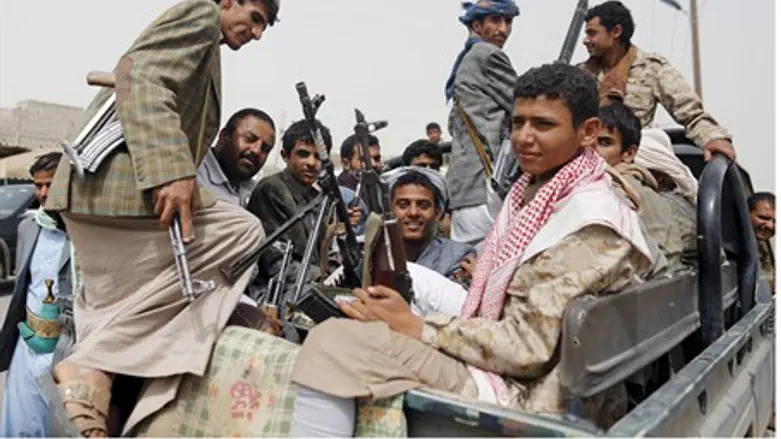
Airstrikes in Yemen led by Saudi Arabia will continue until Yemeni President Abd-Rabbu Mansour Hadi, who left the country on Thursday, is able to rule, a Saudi military spokesman said on Sunday, according to Reuters.
"We will set the conditions necessary to allow the president and his government to run the country," said Brigadier General Ahmed Asseri, spokesman for the coalition, which includes Saudi Arabia and nine other Muslim countries fighting against Iranian-backed Houthi rebels.
"The Yemeni army was almost dismantled (by internal fractures after a 2011 uprising) ... one of the conditions is for them to take over. We will continue to attack the militias, we will keep them under pressure, until the conditions become very favorable for the army to take over," he said, according to Reuters.
Speaking to a small group of reporters after a regular media briefing in Riyadh, Asseri said the strikes had succeeded in stopping the Houthi advance on Aden and in putting pressure on the group across the country.
"We feel that day by day they lose ... we continue to put the pressure on them to stop them ... We believe the situation around Aden will be better and better, day by day," he was quoted as having said.
Fighters loyal to Hadi clashed with Houthi forces on Sunday in the suburbs of the port city, the absent leader's last major foothold in Yemen.
On Wednesday it was reported that Hadi had fled his palace in Aden due to the advance of the Houthis, though government officials denied the reports.
Airstrikes on Saturday night had targeted former Yemeni airforce planes the Houthis had moved from the national capital Sanaa to the al-Rubayi airbase, Asseri said. The base is located west of the central city of Taiz.
He added that Iran had helped the Houthis maintain some of the few jets Yemen possessed, which were used a week ago to target Hadi's headquarters in Aden. Very few were now left and they too would be destroyed, he said.
Asseri estimated there were between 25,000-30,000 regular Houthi fighters, but said numbers were far from stable.
It is believed that Iran is planning to use the Houthi rebels to take over Yemen and seize the key strategic port of Aden, which controls the entrance to the Red Sea and ultimately to the Israeli resort city of Eilat.
Iran has threatened that Saudi Arabia’s foray into Yemen would end up costing it dearly. The Saudi “aggression,” said Iran's Foreign Ministry, would “complicate the crisis in the country and kill opportunities for peaceful resolution of the crisis in the Arab country. The smoke of the war in Yemen will reach the eyes of the Saudis."